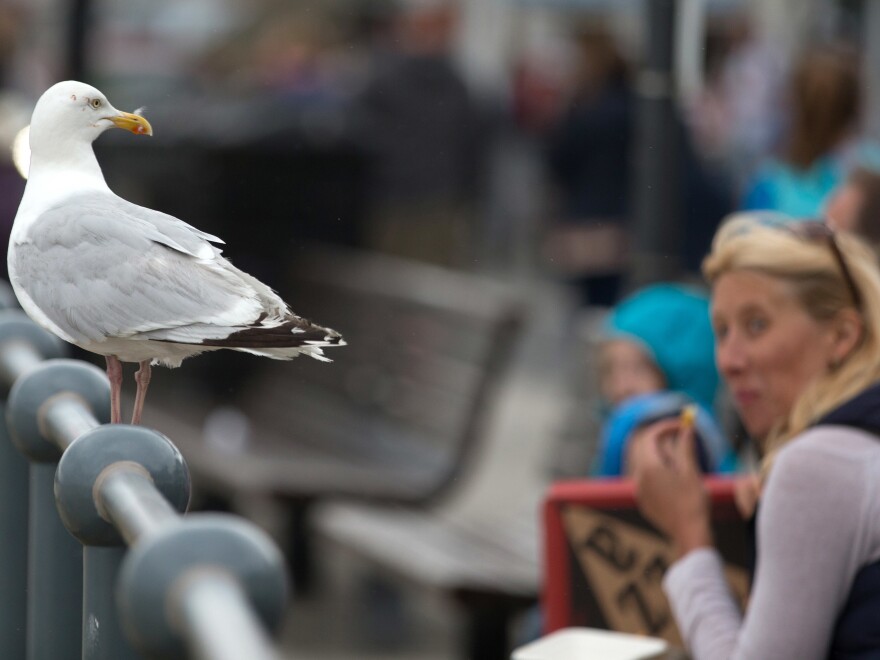Herring gulls commonly breed in urban areas. This means they nest in roofs, rather than cliffs, and need a different kind of food from their usual marine prey.
But these gray-and-white, pink-legged birds (Larus argentatus) don't like to wait for a meal, especially when they have young to feed.
These pesky gulls are therefore known for swooping in and stealing food from unsuspecting humans enjoying a snack outside. Researchers believe they have a way to deter sneaky gull attacks — stare them down.
The study, published in the journal Biology Letters by the Royal Society was conducted last year throughout coastal towns in Cornwall, located in southwestern England.
Taking into account increasing human-herring gull conflicts, a team of researchers in the U.K., led by Madeleine Goumas who is a postgraduate from the University of Exeter, studied how the species responds to human behavior.
Researchers planted a bag of abandoned potato chips on the ground to lure in 74 birds. When a gull would creep close to the food, an experimenter would crouch down to bird level and make eye contact.
Only 36% of the birds pecked at the food anyway, while the majority either flew away or didn't get closer to the bait.
"Gulls took significantly longer to approach the food source when the experimenter looked at them versus away," the research team wrote.
"This demonstrates that gulls use behavioural cues from humans when making foraging decisions in urban environments, and that they find human gaze aversive."
The study suggests that herring gulls are less likely to approach even if a human is just nearby.
Britain, which has six species of gulls, has specifically dealt with this annoyance for years. The research team believes conflict between humans and gulls could exacerbate the gulls' population decline.
Previous tactics used to remedy the problem included "lethal control or deterrents ... which often prove costly and ineffective and ignore species-and-individual-specific behaviour," according to the researchers.
Other alternatives have been proposed over the years, such as avoiding feeding the birds, using plastic owls to scare them away, holding up an umbrella or installing roof fixtures to prevent nesting.
The Old School House Pub in Aberdeen, Scotland, was reportedly among some British businesses that handed out water guns to customers to deter the gulls from approaching.
Overall, it may be easier to just keep an eye on them.
The herring gulls are facing a steep decline. Between 1966 and 2015, the species' population decreased yearly by more than 3.5%, resulting in a 83% drop. According to the Cornell Lab of Ornithology, human activities are the main threats including overfishing, pesticide contamination, and oil pollution.
All gulls are protected under Britain's Wildlife and Countryside Act 1981, making it illegal to injure any species, or damage eggs or an occupied nest.
However, in some cases, the destruction of eggs or nests, but not the killing of birds, is allowed for public health and safety reasons with a special license.
Copyright 2021 NPR. To see more, visit https://www.npr.org. 9(MDAxODg3MTg0MDEyMTg2NTY3OTI5YTI3ZA004))



